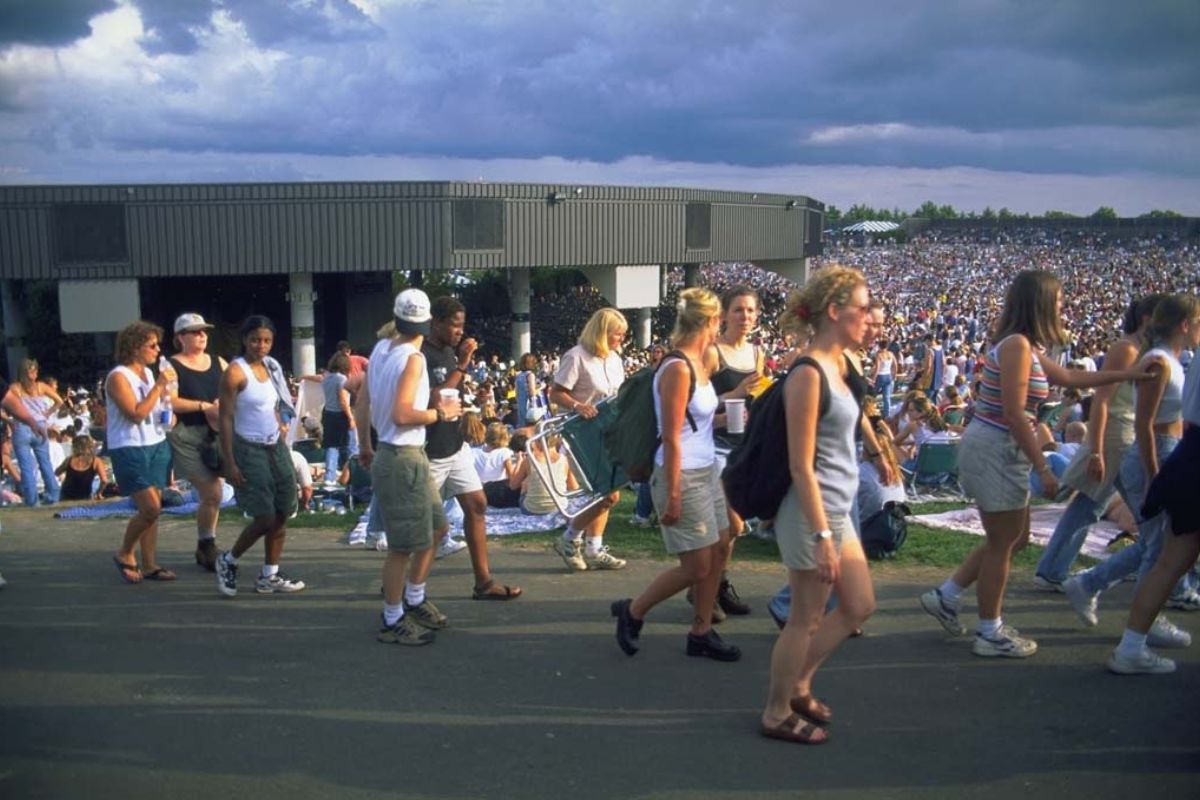
What is Lilith Fair? Lilith Fair was a groundbreaking music festival that celebrated female artists and bands. Founded by singer-songwriter Sarah McLachlan in 1997, it became a platform for women in music to shine. The festival toured across North America, featuring a diverse lineup of performers from various genres. Why was it important? It challenged the male-dominated music industry, proving that female artists could draw large crowds and generate significant revenue. Who performed? Icons like Sheryl Crow, Tracy Chapman, and Jewel graced its stages. What was its impact? Lilith Fair inspired future generations of female musicians and highlighted the need for gender equality in the music world.
What is Lilith Fair?
Lilith Fair was a groundbreaking music festival that celebrated female artists. Founded by Sarah McLachlan, it became a cultural phenomenon in the late '90s. Here are some fascinating facts about this iconic event.
-
Lilith Fair began in 1997: The festival ran from 1997 to 1999, with a revival in 2010.
-
Named after a mythical figure: Lilith, a figure in Jewish mythology, is often considered the first woman created by God, symbolizing female independence and strength.
-
Sarah McLachlan's brainchild: McLachlan founded the festival to address the lack of female representation in the music industry.
-
All-female lineup: The festival exclusively featured female solo artists and female-led bands.
-
Massive success: Lilith Fair grossed over $16 million in its first year alone.
The Artists of Lilith Fair
The festival showcased a diverse range of female talent, from established stars to emerging artists. Here are some notable performers.
-
Sarah McLachlan: As the founder, McLachlan performed at every Lilith Fair.
-
Sheryl Crow: Crow was a frequent performer, bringing her rock and pop hits to the stage.
-
Alanis Morissette: Known for her raw, emotional performances, Morissette was a crowd favorite.
-
Indigo Girls: This folk-rock duo was a staple of the festival.
-
Jewel: The singer-songwriter captivated audiences with her heartfelt lyrics and acoustic sound.
Impact on the Music Industry
Lilith Fair had a lasting impact on the music industry, paving the way for future female artists. Here are some ways it made a difference.
-
Increased visibility: The festival brought female artists to the forefront, challenging the male-dominated industry.
-
Inspired other festivals: Lilith Fair's success inspired other all-female music festivals.
-
Charitable contributions: A portion of the proceeds went to women's charities, raising millions for various causes.
-
Breaking stereotypes: The festival challenged stereotypes about female musicians and their audiences.
-
Mentorship opportunities: Emerging artists had the chance to learn from established performers.
Memorable Moments
Lilith Fair was filled with unforgettable performances and moments. Here are some highlights.
-
Collaborative performances: Artists often joined each other on stage for unique collaborations.
-
Surprise guests: The festival featured surprise appearances by artists like Stevie Nicks and Emmylou Harris.
-
Diverse genres: The lineup included a wide range of genres, from folk to rock to hip-hop.
-
Empowering speeches: Many artists used their platform to speak about women's rights and empowerment.
-
Iconic venues: The festival toured across North America, performing at some of the most famous venues.
Challenges and Criticisms
Despite its success, Lilith Fair faced its share of challenges and criticisms. Here are some of the issues it encountered.
-
Ticket sales decline: By 1999, ticket sales had started to decline, leading to the festival's hiatus.
-
Diversity concerns: Critics argued that the lineup lacked diversity, particularly in terms of race and genre.
-
Commercialization: Some fans felt the festival became too commercialized over time.
-
Logistical issues: Organizing a touring festival presented numerous logistical challenges.
-
Mixed reviews: While many praised the festival, others felt it didn't live up to the hype.
The Revival of Lilith Fair
In 2010, Lilith Fair made a brief comeback. Here are some facts about the revival.
-
New lineup: The 2010 revival featured a mix of original performers and new artists.
-
Mixed success: The revival faced challenges, including lower-than-expected ticket sales.
-
Cancelled dates: Several dates were canceled due to poor ticket sales and logistical issues.
-
Legacy continued: Despite the challenges, the revival helped introduce a new generation to Lilith Fair's legacy.
-
Enduring influence: Lilith Fair's impact on the music industry and female artists continues to be felt today.
Lilith Fair's Lasting Impact
Lilith Fair wasn't just a music festival; it was a movement. It gave female artists a platform to shine, proving they could headline major tours and draw massive crowds. This festival broke barriers, showing the music industry that women could rock just as hard as men. It inspired countless young women to pick up instruments, write songs, and dream big.
The festival also raised millions for women's charities, making a tangible difference in communities. Its legacy lives on through the artists it helped launch and the conversations it started about gender equality in music.
Though it ended in 1999, Lilith Fair's influence is still felt today. It paved the way for more inclusive festivals and highlighted the importance of supporting female talent. Lilith Fair wasn't just a moment in time; it was a catalyst for change.
Was this page helpful?
Our commitment to delivering trustworthy and engaging content is at the heart of what we do. Each fact on our site is contributed by real users like you, bringing a wealth of diverse insights and information. To ensure the highest standards of accuracy and reliability, our dedicated editors meticulously review each submission. This process guarantees that the facts we share are not only fascinating but also credible. Trust in our commitment to quality and authenticity as you explore and learn with us.
